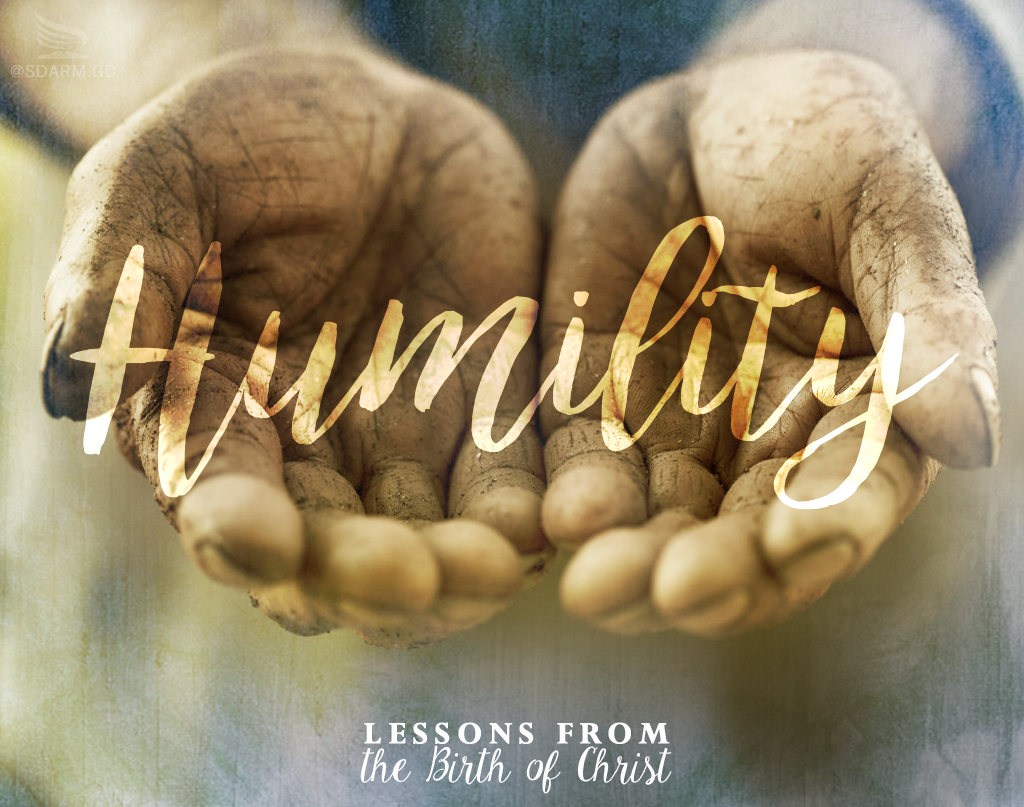
Perhaps one of the most evident lessons gleaned from the life of Christ is the lesson of humility. It is interwoven into His story here on Earth from its very beginning in Bethlehem to its very end at Golgotha.
The humble circumstances of Christ’s birth clashed with the proud expectation of pomp and glamour that was held by the Israelite nation.
“The priests and rulers among the Jews were not ready to welcome Jesus. They knew that the Saviour was soon to come, but they expected Him to be a mighty king who would make them rich and great. They were too proud to think of the Messiah as being a helpless child,” (The Story of Jesus, p. 16).
Christ’s birth was a rebuke of pride and a lesson in humility. He, the Ruler of the universe, did not even come in the form of an exceptional sample of humanity. Instead, He took the form of a helpless babe. His parents were “nobodies”. His place of birth less than ideal. His roommates were animals, literally.
His first visitors were humble shepherds. “These were good men, and as they watched their sheep by night, they talked together about the promised Saviour, and prayed so earnestly for His coming that God sent bright messengers from His own throne of light to teach them,” (Ibid.).
These humble souls were also expecting the Messiah. Their hearts were open, their nights were spent praying for His arrival. But the difference was that their humility prepared them to receive the good news. He was here! He was born! Their blessed hope—our blessed hope—was born!
The Jewish priests and rulers who were so wrapped up in their worries of status, material gain, and worldliness, were not ready to receive the news of the Messiah’s birth. The lowly shepherds, on the other hand, did not question when the angels appeared and told them they would find the world’s Redeemer in a manger.
Let’s imagine the angels had gone to a high priest or ruler. At first, their hearts would be bursting with awe and excitement at seeing the angel choir. “How beautiful! What an honor! How good am I that I was chosen to be the first to know!” But as the brilliance of the angels faded away, so would their belief. “Did they say a ‘manger’? No, no…something must be wrong.” The good news would be lost, eclipsed by their hurry to tell everyone that they had received a visit from angels.
How can we believe and be proud? How can we follow the example of a humble Saviour while nurturing pride? Humility is hard. Humility in practice means forgiving those who do not ask for forgiveness. It means washing the feet of our brethren during communion. It means accepting the responsibilities of a role in the church for the love of the work and not for a perceived status. It means giving, sacrificing, offering grace to those who least deserve it, and a constant battle against the proud self.
“Before He came to the earth, Jesus was the Commander of the angel hosts. The brightest and most exalted of the sons of the morning heralded His glory at the creation. They veiled their faces before Him as He sat upon His throne. They cast their crowns at His feet, and sang His triumphs as they beheld His greatness. Yet this glorious Being loved the poor sinner, and took upon Him the form of a servant, that He might suffer and die for us. Jesus might have remained at the Father's side, wearing the kingly crown and the royal robe; but for our sake He chose to exchange the riches of Heaven for the poverty of earth,” (The Story of Jesus, p. 15).
Humility comes easier when we stop comparing our lives and our progress to others. The world—in its attempt to make its citizens better people—offers an alternative: compare your progress today to your progress yesterday. While better, this comparison still induces pride. Christians are called to go a step further. True humility will come when we meditate on Christ and compare ourselves to His example alone.